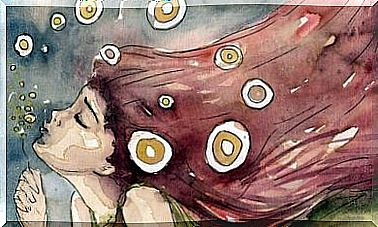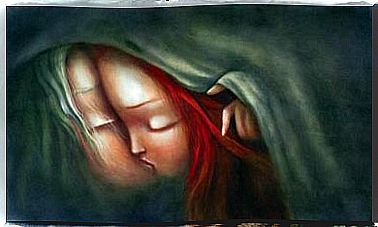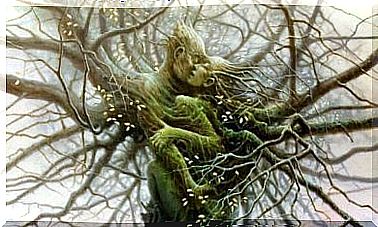What Is It Like To Live With Obsessive-compulsive Disorder?

Have you ever wondered what it would be like to live with obsessive order, purity, or following certain rules? Is this happening to you? Obsessive-compulsive disorder (OCD) has two main components – obsessions that take over a person’s mind, and compulsive actions aimed at relieving the anxiety caused by obsession.
The cycle between the onset of obsession and the development of obsessive-compulsive function defines the life of a person suffering from obsessive-compulsive disorder. A person suffering from this disorder has to deal with high levels of suffering and anxiety, he feels misunderstood, and spends much of his day fighting obsessions by performing compulsive rituals. In this article, we explain what their daily lives look like and what thoughts, feelings, or fears they have.
Anxiety is a major component of OCD
People with OCD live with severe anxiety. Anxiety follows them like a shadow. Why? For anxiety, and the need to avoid it, is ultimately what motivates most of their behavior. When an obsession arises, their anxiety subsides. But if they are unable to perform their rituals of compulsion, the anxiety will increase even more, and then fear will also be added to the anxiety.
For example, someone who is obsessed with washing their hands will feel almost no anxiety when washing their hands. But who exactly can spend the whole day with their hands under a running tap? Whose skin can withstand so much soap use?

Let’s imagine that person in public transportation, on the subway, thinking about all the bacteria he’s touched. Because he is in a place where he cannot perform his compulsive behavior, he feels a lot of anxiety and the anxiety only grows from growing every minute when he can’t wash his hands.
It’s easy to see how limited capacity he has for normal routines. People with OCD go to extremes while avoiding situations where they are unable to perform their compulsive activities or situations that may reveal their obsession (in that case, any place that is dirty). As a result, their lives may be limited to their homes, places in the immediate vicinity of their home, a small circle of friends, and little or no social activity.
Fear of one’s own thoughts
People living with OCD are afraid of their own minds. They fear that thinking about something will increase the chance of it happening. In addition, people with OCD create rules and norms about what they get and what they don’t get to think and feel, just as if they didn’t follow those rules, something horrible is going to happen. In these cases, the basic feeling they feel is fear, and the ritual of their coercion is a failed strategy that prolongs fear.
It is usually impossible for us to control our thoughts. Trying not to think about something makes us think about that more than anything else. People who suffer from OCD think the same things as everyone else, but they face their thoughts in a way that only reinforces them.
People with OCD may want to completely eliminate what they think can cause a feeling of fear. And because this is impossible, they begin to fear their own minds. People with OCD fear that they will not be able to control their own thoughts. They just want to think nice things, but they fail in that endeavor because it’s impossible.

Thus, people with OCD always pay attention to what their minds are saying in an attempt to control their thoughts using ineffective strategies. When they can’t do this, their anxiety grows and turns into fear, and it doesn’t feel like anything other than a compulsive ritual that brings them closer to their comfort zone. They live like prisoners of their own mind, unable to be sure that nothing bad will happen if they do not perform this ritual, and they try every day to control what cannot be controlled.
If you know someone with obsessive-compulsive disorder, it is important that you do not try to reason with him. He already knows that probably the things he fears and expects will not happen. In other words, he is not in a psychotic state or has lost his sense of reality. He knows he’s exaggerating his ability to control things, but his anxieties and fears are strong enough to get him into a vicious circle he can’t break.
The best thing we can do is encourage him to go to a psychologist who specializes in obsessive-compulsive disorder and anxiety disorders. We can help him find such a psychologist, and if he trusts us enough, we can go with him to the first session. Obsessive Compulsive Disorder can be truly debilitating, but there are therapeutic strategies that have been proven to be effective enough to reduce its negative effects on the lives of people who suffer from this disorder.









